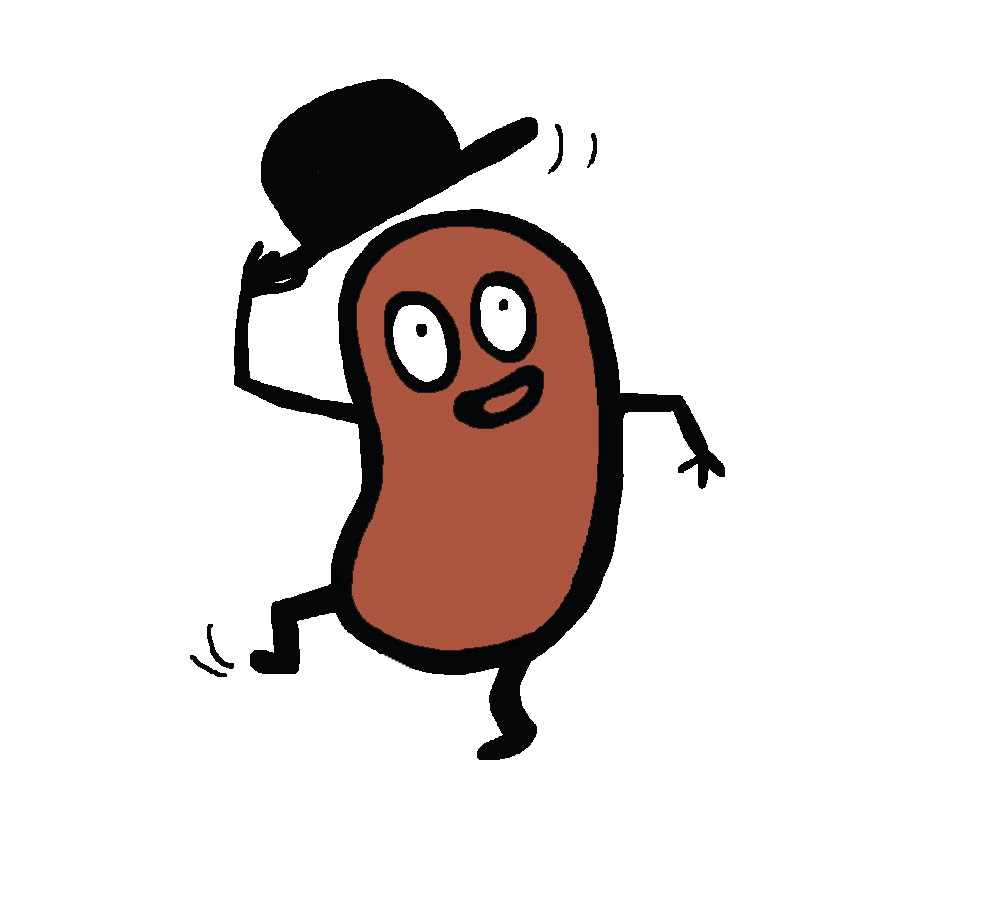The Dancing Bean is not just a whimsical phrase; it embodies a delightful phenomenon that captures the imagination and curiosity of people everywhere. From its origins steeped in folklore to its modern interpretations in art and culture, the dancing bean has become a symbol of joy, movement, and the unexpected wonders of nature. Whether you’ve encountered it in a storybook, a scientific experiment, or even as a playful element in a craft project, the dancing bean continues to inspire creativity and fascination.
At its essence, the dancing bean represents the enchantment found in simple things. It serves as a reminder that even the smallest elements of our world can bring a sense of joy and wonder. This article delves deep into the phenomenon of the dancing bean, exploring its origins, its representation in various cultures, and how it can be a source of inspiration for individuals of all ages. Join us on this lively journey and discover the many facets of the dancing bean!
As we explore the dancing bean, we will uncover its significance in children's literature, educational activities, and even its surprising connections to dance and movement. Prepare to be amazed at how a simple bean can lead to such a rich tapestry of ideas and exploration!
What is the Origin of The Dancing Bean?
The dancing bean is often associated with the Mexican plant known as the "dancing bean plant," or more formally, the "Sebastiana pavoniana." But its origins extend beyond the plant itself. The term "dancing bean" also relates to the folklore surrounding the beans that seem to 'dance' when placed in certain conditions, particularly when they are exposed to moisture or heat. This fascinating phenomenon has captured the hearts of many, leading to various interpretations across cultures.
How Does The Dancing Bean Work?
The dancing bean operates on the principle of movement caused by environmental changes. When water is applied to the dried beans, they absorb moisture, causing them to swell and move as they expand. This can create a lively effect, almost as if the beans are dancing. The science behind this is rooted in botany and physics, making it a fun and educational experiment for children and adults alike.
What are the Cultural Representations of The Dancing Bean?
Across different cultures, the dancing bean has taken on various meanings and representations. In Mexican folklore, for example, the dancing bean is often seen as a symbol of joy and celebration. It is also featured in children's stories, where it serves as a metaphor for happiness and movement. The visual appeal of the dancing bean has also made it a popular motif in art, with many artists incorporating it into their work to convey a sense of liveliness and whimsy.
Can The Dancing Bean Be Used in Education?
Absolutely! The dancing bean offers a fun and engaging way to teach children about plant biology, movement, and even the principles of physics. Here are some educational activities that can be inspired by the dancing bean:
- Science Experiments: Children can observe the effects of water on the beans and learn about absorption and swelling.
- Art Projects: Create vibrant art pieces inspired by the movement of the dancing beans.
- Storytelling: Incorporate the dancing bean into creative writing exercises, allowing children to use their imagination.
Who is The Dancing Bean in Popular Culture?
In popular culture, the dancing bean has made appearances in children's literature, animation, and even social media. It has become a playful character that embodies joy, movement, and the spirit of adventure. Many children's books feature the dancing bean as a central character, teaching lessons of friendship and creativity.
What Are the Key Features of The Dancing Bean?
The dancing bean is not only a fun phenomenon but also has some distinct features. Here are some key characteristics:
- Movement: The most notable feature is its ability to 'dance' when exposed to moisture.
- Visual Appeal: The beans come in various colors and sizes, making them visually interesting.
- Symbolism: They often symbolize joy, creativity, and the magic of nature.
How Can You Enjoy The Dancing Bean at Home?
Bringing the magic of the dancing bean into your home can be a delightful experience. Here are some fun ways to enjoy this phenomenon:
- Home Experiments: Conduct simple experiments with beans to observe their movement.
- Craft Projects: Use beans to create art or decorations for your home.
- Storytime: Read books featuring the dancing bean and discuss the stories with your family.
What Are the Benefits of Engaging with The Dancing Bean?
Engaging with the dancing bean can provide numerous benefits, particularly for children. It encourages creativity, enhances observational skills, and fosters a love for learning. Here are some additional advantages:
- Encourages Curiosity: Children are naturally curious, and the dancing bean can spark their interest in science and nature.
- Promotes Playfulness: The playful nature of the dancing bean encourages imaginative play.
- Builds Connections: It can be a wonderful way to connect with family and friends through shared activities.
Conclusion: Embrace The Dancing Bean
The dancing bean is a captivating phenomenon that blends science, culture, and creativity. Whether you're exploring its origins, engaging in educational activities, or simply enjoying its playful spirit, the dancing bean has something to offer everyone. As you embrace the magic of the dancing bean, remember that it symbolizes the joy found in small things and the beauty of movement in our lives. So go ahead, let your imagination dance along with the beans!
```
Unveiling The Secrets Of Product G And B
Unveiling The Passion And Pride Of Mexico Selección Femenil
Exploring The Legacy And Impact Of The Helen Frankenthaler Foundation


